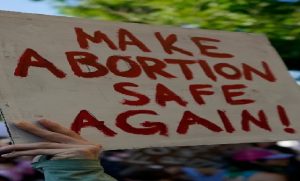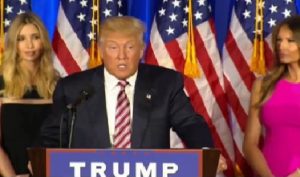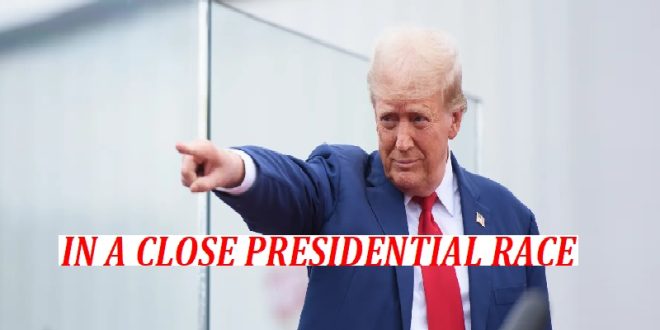21-10-2024
LOS ANGELES, CALIFORNIA: Restricting abortion has long been a cornerstone of the Republican Party but two revelations at the start of October signaled just how far the party’s stance has shifted under former United States President Donald Trump.
On October 1, Trump pledged for the first time to veto a federal abortion ban, if re-elected in November’s presidential race. Then, two days later, his wife Melania Trump declared her support for abortion rights.
 It was a stunning about-face for Trump who, just one year prior, told supporters he was “proud to be the most pro-life president in American history” but experts say Trump’s mixed messages are part of a wider campaign strategy, to appeal to both sides of the polarising issue.
It was a stunning about-face for Trump who, just one year prior, told supporters he was “proud to be the most pro-life president in American history” but experts say Trump’s mixed messages are part of a wider campaign strategy, to appeal to both sides of the polarising issue.
Trump is facing a tight race in November, and surveys indicate he is struggling to rally female voters. A September poll from ABC News and the research firm Ipsos found that the Republican trailed his Democratic rival, Kamala Harris, by nearly 13 points among women.
The same poll showed more voters trusted Harris to handle the topic of abortion than Trump.
With reproductive rights seen as an Achilles heel for Trump and the Republican Party at large, analysts say Trump’s ever-shifting stance on abortion could be an effort to muddy the waters and win back some voters in the process but it could also backfire, alienating certain stalwart Republican voters.
“By trying to appeal to everyone, he may risk appealing to no one,” said Mary Ziegler, a professor at the University of California Davis School of Law. “That’s the high-wire act he’s trying to do.”
Trump’s strategic ambiguity is no new phenomenon, though. The former president has long been a chameleon on the subject of reproductive rights and in politics as a whole. He went through a phase, for instance, when he publicly identified with the Democratic Party. Around that period, in 1999, he told the TV show Meet the Press, “I’m very pro-choice” but by the time he made his first successful presidential bid in 2016, Trump was firmly Republican and firmly against abortion access.
 “I am pro-life, and I will be appointing pro-life judges,” Trump said during the final presidential debate of 2016.
“I am pro-life, and I will be appointing pro-life judges,” Trump said during the final presidential debate of 2016.
He ultimately followed through with that pledge, appointing three justices to the Supreme Court during his term in office. He has since taken credit for the court’s decision to overturn Roe v Wade, the case that had previously upheld a constitutional right to abortion access.
As he sought re-election in 2024, Trump repeatedly framed the overturning of Roe v Wade as an accomplishment no other Republican could claim.
“For 54 years, they were trying to get Roe v Wade terminated and I did it,” he told a Fox News town hall in January. “And I’m proud to have done it.”
But that decision has allowed states to pass restrictive abortion bans that prevented some women from accessing life-saving reproductive healthcare, leading to their deaths. By the time July arrived, the Trump campaign was ready to roll out a new approach to abortion.
Under Trump’s influence, the Republican Party dropped its long-held support for a national abortion ban from its official platform. That marked a rupture with decades of tradition: Every Republican platform since 1984 had included a reference to the ban but Ziegler, of the University of California, pointed out that the platform nevertheless contained a coded reference to the idea of foetal personhood: In a short section about abortion, the platform argues that the Constitution says “no person can be denied life”. (Int’l Monitoring Desk)
 Pressmediaofindia
Pressmediaofindia




